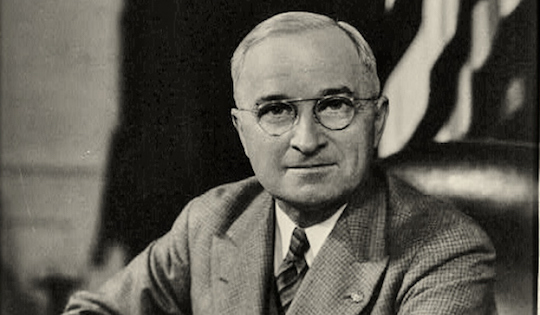One of the central propositions of the Obama presidency, along with closing Guantanamo Bay and shooting Osama Bin Laden in the face,1 was to reduce the role of nuclear weapons in US foreign policy. In both Prague in 2009 and Hiroshima in May, the president called for “a world without nuclear weapons.” Until that world is ours, though, the United States reserves the right to nuke first and ask questions later, presumably while pouring water over a rag stuffed in your mouth. The Times reports today that national security advisors have convinced the president to abandon plans to foreswear first use of nuclear weapons in combat. As of today, but also as of 1945, you don’t have to nuke the US for the US to nuke you.
This policy seems risky to me. The argument for nuclear weapons, among sensible people, has always been that they deter conflict among nations that possess them. If every nuclear power pledged not to nuke unless nuked, we might set aside nuclear warfare as a purely theoretical holocaust. Reserving the right to launch a first strike, on the other hand, puts nuclear war on a continuum with conventional war. Instead of being a nightmare scenario accessible only in Dr. Strangelove scenarios, a nuclear exchange becomes something we might do if one of our conventional conflicts goes badly enough.
This threat may itself be merely a deterrent, but if the Obama administration does not consider it credible, it is taking steps to imply it does. Quote:
Defense Secretary Ashton B. Carter and Secretary of State John Kerry also expressed concern that new moves by Russia and China, from the Baltic to the South China Sea, made it the wrong time to issue the declaration, according to senior aides in the Defense and State Departments.
Are we to understand that if China keeps building that weird sand island or Putin invades Turkey, we might launch a thermonuclear war? I’m all for Turkish sovereignty, but I’m not sure its worth killing millions and potentially ending human civilization. If we are reserving the right to launch nuclear first strikes to protect our allies, we are also tacitly asserting that we would incur an existential threat to the United States to intercede in other countries’ disputes.
The rejoinder to that, of course, is that other countries’ disputes are existential threats to the United States. We didn’t wait until Hitler was on the Canadian border to join World War II. Right now, the balance of power among nations makes nuclear weapons seem unconscionable. But in ruling out their use, we don’t want to let that balance shift until they become our best option.
So here’s a fun question: Is the President of the United States ready to launch a nuclear first strike, or does he merely need to look ready? In day-to-day life, i.e. bars, those willing to make a fist greatly outnumber those willing to throw a punch. Historically, that’s borne out in geopolitics, too. Except that one time—President Harry Truman did launch a nuclear first strike against Hiroshima and Nagasaki, in 1945, at the end of World War II.
The claim that he did it to obviate a ground invasion and save half a million lives is bunk. At the time, the War Department estimated US casualties in an island-to-island invasion of Japan at between 20,000 and 70,000. The 500,000 figure appeared for the first time ten years later, in Truman’s autobiography. It was a justification that masked our real intention, which was to show the USSR we had a doomsday bomb and were willing to use it.
By checking Soviet aggression in Asia, that decision may have prevented nuclear war. But try getting out your ouija board and telling 100,000 dead civilians that we nuked them so we didn’t have to nuke anyone else. The problem with nuclear weapons as a deterrent is that they become the only solution to a problem they themselves create. We could more reliably avoid nuclear war by not having them at all.
As of today, that scenario remains farfetched. We are on track to spend $1 trillion modernizing these weapons we all agree are so destructive they must never be used, ostensibly so no one will use them on us. We reserve the right, though, to use them first. It’s an absurd system, and so far we—not “we” as in everybody, but “we” as in the United States—have not suffered under it. Perhaps the more likely nightmare is not the one where we are victims in nuclear war, but the one where we are villains.




